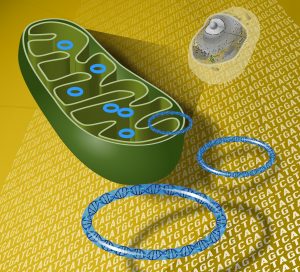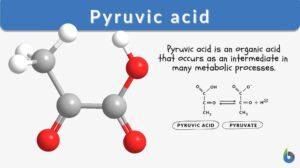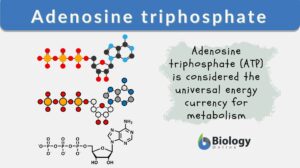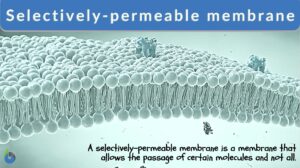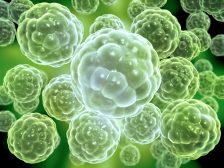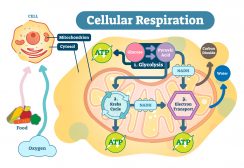Search Results for: mitochondrion
Mitochondrion
Mitochondrion Definition What are mitochondria? The term “mitochondrion” comes from the two words of the Greek... Read More
Mitochondrial DNA
Mitochondrial DNA Definition noun plural: mitochondrial DNAs The genetic material in the mitochondrion that carries code... Read More
Mitochondrial DNA not just from moms but also from dads?
If one wants to trace down lineage, that person could turn to the cell's powerhouse, the mitochondrion. This organelle... Read More
Cellular respiration
Cellular Respiration Definition What is cellular respiration in simple terms? Cellular respiration can be defined simply as... Read More
Fatty acid
Definition noun plural: fatty acids'' fatty acid, ˈfætɪ ˈæsɪd Any of the group of a long chain of hydrocarbon... Read More
Biological Cell Introduction
It only takes one biological cell to create an organism. In fact, there are countless species of single-celled organisms,... Read More
Mitochondrial DNA – hallmark of psychological stress
We often hear that stress can be unsettling as it could make us ill when it becomes chronic and overwhelming. However, is... Read More
Cell Structure
The interior of human cells is divided into the nucleus and the cytoplasm. The nucleus is a spherical or oval-shaped... Read More
Chemiosmosis
Chemiosmosis Definition What is chemiosmosis? In biology, chemiosmosis refers to the process of moving ions (e.g. protons)... Read More
Prokaryotic Ancestor of Mitochondria: on the hunt
The alphaproteobacteria have been widely cited as the closest relative-- and possibly the prokaryotic ancestor -- of the... Read More
Steroidogenesis
Definition noun, plural: steroidogeneses The biosynthesis of steroid hormones from cholesterol by various cells, such as... Read More
Pyruvic acid
What is Pyruvic Acid? Pyruvic acid is an organic acid that occurs as an intermediate in many metabolic processes. It occurs... Read More
Adenosine triphosphate
Adenosine Triphosphate Definition noun plural: adenosine triphosphates (biochemistry) An organic compound that is... Read More
Selectively-permeable membrane
Selectively Permeable Membrane Definition We can define selectively permeable membranes as those that are selectively... Read More
Glycolysis
What is Glycolysis and Why is it Important? Glycolysis is a metabolic pathway by which the 6-carbon molecule of glucose is... Read More
Endomembrane system
Ever wondered how biomolecules are made within the cell and then they are released outside the cell for use by the body?... Read More
Chloroplast DNA
Definition noun plural: chloroplast DNAs DNA in the chloroplast that carries the code for proteins and RNAs essential to... Read More
Plant Cells vs. Animal Cells
Plant Cells Most cells are not visible with the naked eye. However, with microscopes of various types, plant cells can be... Read More
The Evolution of Cell Organelles
The previous tutorial page noted the emergence of protists, organisms that possessed a distinct cell nucleus and contained... Read More
Krebs cycle
Krebs cycle, also known as the citric acid cycle or tricarboxylic acid (TCA) cycle, is a fundamental metabolic pathway that... Read More
Transit peptide
Definition noun An extra peptide at the amino terminus of a nascent protein that prompts the transport mechanism of the cell... Read More
Chemiosmotic coupling hypothesis
Definition noun A theory postulated by the biochemist Peter Mitchell in 1961 to describe ATP synthesis by way of a proton... Read More
Kinetoplastid
Definition ''noun, plural: kinetoplastids’’ Any of the group of flagellate protozoa, characterized mainly by the... Read More
Light-dependent reaction
Many organisms, such as green plants, convert light energy into chemical energy through the mechanism of photosynthesis. In... Read More
Cell Respiration
As mentioned in the previous tutorial on ATP, the process of respiration is split into 3 distinct areas that occur at... Read More
Brown adipose tissue
Definition noun, plural: brown adipose tissues A type of adipose tissue found in mammals that is brownish as opposed to... Read More
Eubacteria
Eubacteria are prokaryotic microorganisms consisting of a single cell lacking a nucleus and containing DNA is a single... Read More
Endoplasmic reticulum
Endoplasmic Reticulum Definition The endoplasmic reticulum is a membrane-bound organelle in cells of eukaryotic cells... Read More
Marker enzyme
Definition noun, plural: marker enzymes Any enzyme confined to a particular organelle, cell, or cellular... Read More
Fermentation
Fermentation Definition What is fermentation? Fermentation is the breaking down of sugar molecules into simpler compounds... Read More
Carbohydrate
Carbohydrate Definition A biomolecule refers to any molecule that is produced by living organisms. As such, most of them... Read More









